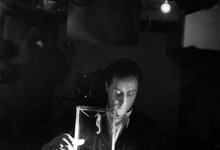(1902-1989)
Nationality: French
Born to the mathematician and politician Paul Painlevé, the anarchistically-inclined Jean Painlevé studied medicine, physics and geology. He was a pioneer of scientific cinema. He managed to defend the film medium as a serious means of research within the scientific community: in 1925, he presented a paper to the Academy of Sciences based on his first film L'oeuf d'épinoche: de la fécondité à l'éclosion. However, this initiative would remain an object of contempt by his peers who considered his work a "distraction for ignorant people". He was also very drawn to the artistic avant-garde and merged all these influences into films that are as poetic as they are scholarly. From 1925 to 1982, Jean Painlevé made more than 200 films, mainly dedicated to the marine world. Silent or sound films, carried by jazz, serial or symphonic music and commented on in a deliberately offbeat tone - on the screen or in the narration. He projected his vision of society onto nature, giving an ironic colour to his strange and brutal films. The 1930 screening of Caprelles and Pantopodes won over artists as diverse as Fernand Léger, Chagall and Artaud. His approach is not unlike that of Jean Vigo or Luis Bunuel. Like the latter, he was a dissident of the surrealist group and refused André Breton's authority.
No print in distribution

